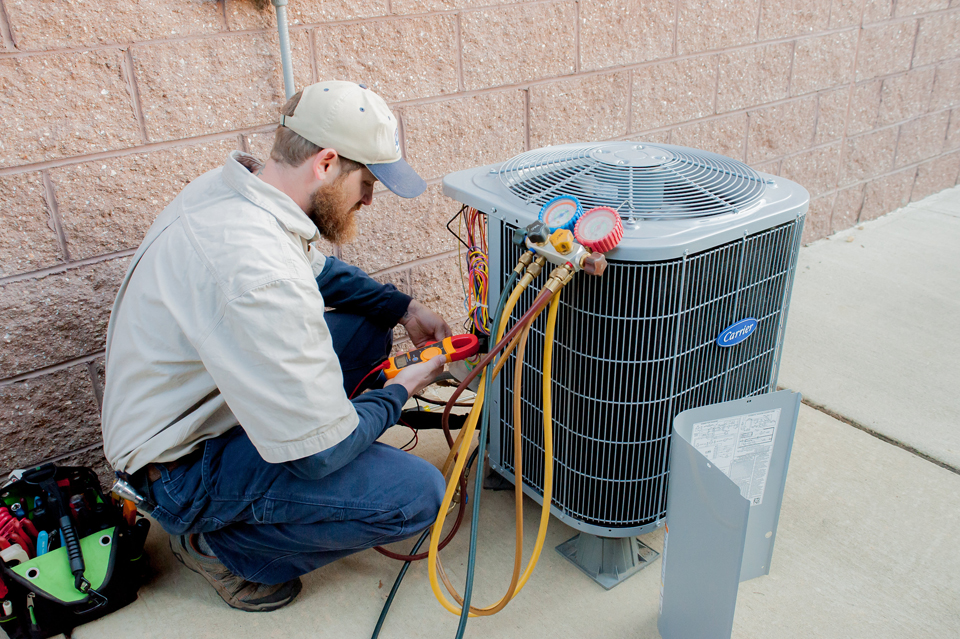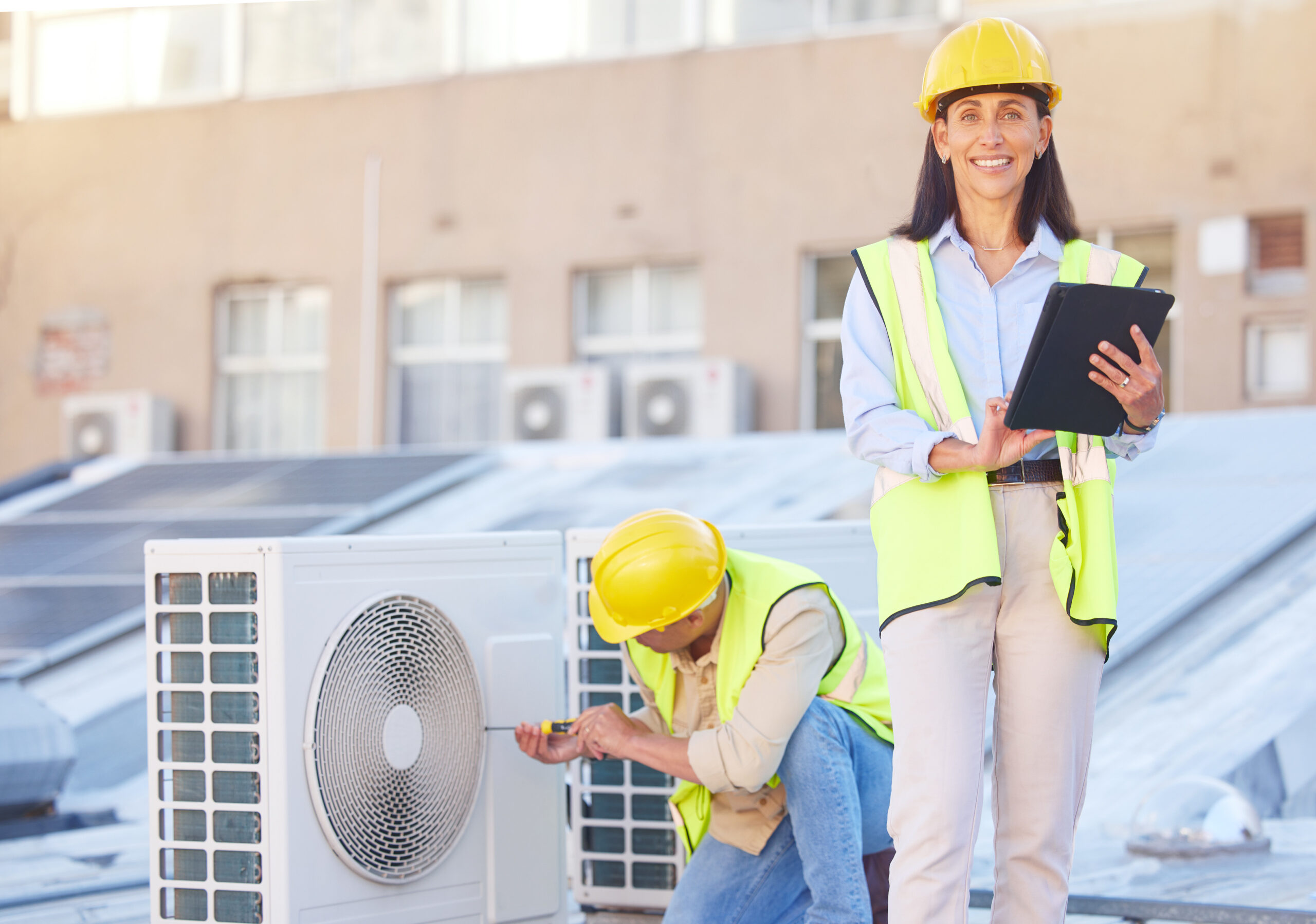Adopting ductless mini splits: A Wise Investment for Energy-Efficient Living
Adopting ductless mini splits: A Wise Investment for Energy-Efficient Living
Blog Article
Choosing In Between a Heatpump and Furnace: Trick Considerations for Your A/c Requirements
When examining heating options for HVAC requires, the decision between a warmth pump and a heating system can be complicated. Each system provides distinct benefits tailored to specific climates and power efficiency objectives. Comprehending these distinctions is necessary for making an informed choice. Key elements such as installation costs and ecological impact further make complex the selection procedure. Which option truly straightens with one's convenience and sustainability preferences? The following areas will explore these considerations carefully.
Recognizing Warmth Pumps: Just How They Work and Their Advantages
While numerous house owners consider various home heating choices, comprehending exactly how warm pumps function and their advantages can significantly affect their choice. Heatpump operate by transferring warm as opposed to producing it. In the winter, they draw out warmth from the outside air or ground and transfer it inside, while in the summertime, they reverse this procedure, cooling down the home by removing warm outside. This twin functionality makes them functional for year-round climate control.One of the key advantages of heat pumps is their energy effectiveness. They utilize significantly much less power compared to conventional heating unit, possibly resulting in lower utility expenses (heat pump service). In addition, heatpump have a smaller carbon footprint, making them an eco-friendly option. They additionally call for much less upkeep than conventional systems, contributing to long-lasting expense savings. Overall, comprehending the auto mechanics and advantages of heatpump can assist home owners make informed decisions regarding their home heating and cooling down demands
Discovering Heaters: Kinds, Procedure, and Benefits
Heaters can be found in numerous types, consisting of gas, electrical, and oil versions, each with distinctive operational mechanisms. Recognizing these differences is essential, as they impact efficiency and home heating efficiency. Furthermore, furnaces offer numerous advantages, such as regular warmth result and dependability in cooler environments.
Kinds of Furnaces
Heating unit can vary significantly in style and procedure, with heating systems being a popular selection among house owners. There are a number of kinds of heating systems, each using various gas resources and modern technologies. Gas furnaces prevail, leveraging all-natural gas to generate warmth successfully. Electric heaters, on the various other hand, make use of electric resistance to produce warmth, commonly preferred for their straightforward setup. Oil heaters, while less common, work in areas with minimal gas accessibility (heat pump installation ooltewah tn). In addition, condensing heating systems take full advantage of power effectiveness by reusing and recording exhaust gases. Each type operates via a system of heat exchangers and ductwork to distribute cozy air throughout a home. Recognizing the distinctions in between these heater types is important for notified a/c decisions
Advantages of Heating systems
For property owners looking for reliable heat throughout chilly months, the advantages of heating systems are substantial. Heaters supply constant heating, making sure also temperatures throughout the home. They are specifically efficient in severe cool, often surpassing warmth pumps in freezing conditions. Different kinds, consisting of gas, electrical, and oil furnaces, offer versatility to satisfy varied requirements and preferences.Furnaces additionally often tend to have reduced first installment prices compared to warmth pumps, making them a much more obtainable alternative for several. Their durable layout adds to a much longer life-span, with several devices lasting over 15 years with correct upkeep. Furthermore, contemporary heating systems are usually equipped with innovative modern technology for boosted performance, which can cause minimized power costs. On the whole, heating systems remain a dependable choice for reliable home heating.

Power Efficiency: Comparing Warmth Pumps and Furnaces
When comparing energy effectiveness in between warmth pumps and heating systems, the Seasonal Energy Efficiency Proportion (SEER) plays an essential function in identifying performance. Furthermore, a functional cost evaluation exposes the long-lasting monetary ramifications of each system. Comprehending these variables can guide home owners in making notified choices about their heating options.
Seasonal Energy Efficiency Ratio
Energy effectiveness plays a vital function in the decision-making procedure in between warm pumps and furnaces, especially when thinking about the Seasonal Energy Efficiency Proportion (SEER) This statistics actions the cooling effectiveness of heatpump over an entire air conditioning season, offering a standardized method to assess performance. Greater SEER scores show higher power efficiency, equating to lower energy intake and minimized energy expenses. On the other hand, furnaces are normally assessed utilizing the Annual Gas Usage Performance (AFUE) score, which mirrors heating efficiency. When comparing these two systems, house owners ought to focus on SEER scores for heat pumps, as they directly impact overall power savings and ecological sustainability. An extensive understanding of SEER can notably influence the long-term fulfillment and cost-effectiveness of the selected cooling and heating solution.
Functional Expense Evaluation
Comprehending the functional expenses connected with heatpump and heating systems is crucial for property owners reviewing their options. Warm pumps generally supply higher power effectiveness, transforming electric power right into warm with marginal waste. This leads to reduced regular monthly energy expenses, specifically in moderate climates. On the other hand, conventional heating systems, especially gas models, may have reduced ahead of time prices however can sustain higher operational expenditures in time due to fuel rates and effectiveness ratings.Moreover, warm pumps can operate as both heating and cooling down systems, possibly decreasing the requirement for different a/c units. While initial investments for heatpump may be greater, their lasting cost savings in power effectiveness can make them a more cost-effective option for numerous homes. Careful evaluation of regional energy rates read is important to identify the ideal choice.
Setup Expenses: What to Expect for each and every Home Heating System
Setup expenses for heater can vary significantly between heatpump and heating systems, affecting home owners' decisions. Heatpump normally have greater upfront installation expenses, usually varying from $3,500 to $8,000, depending upon the device dimension and complexity of installation. This consists of the outdoor unit, interior handling system, and needed ductwork modifications. Conversely, heaters have a tendency to have lower preliminary prices, balancing between $2,500 and $6,000, which can be appealing for budget-conscious home owners. Nonetheless, installment costs can increase if extensive ductwork is required.Moreover, the selection of gas kind for heating systems-- gas, propane, or electrical-- can also affect setup expenses. While heatpump provide energy performance, their preliminary investment might hinder some purchasers. Inevitably, evaluating installment prices along with long-lasting cost savings and efficiency will certainly aid house owners in making notified decisions concerning their heater.
Environment Factors To Consider: Which System Does Much Better in Your Location
Just how do climate conditions affect the effectiveness of heater? The performance of warmth pumps and heating systems can differ considerably depending upon the regional environment. In moderate climates, heatpump succeed by effectively moving warm from the outdoors air, making them an energy-saving alternative. Their performance lessens in very chilly temperatures, where they might struggle to remove adequate warm. Alternatively, heating systems, especially gas models, offer trustworthy and regular heat no matter of outside problems, making them preferable right here in colder regions.In locations that experience milder wintertimes, heatpump can run successfully year-round, supplying both heating and cooling. In contrast, regions with harsh winter seasons frequently gain from the toughness of furnaces. Eventually, recognizing the neighborhood climate is important when determining in between a heat pump and a heating system, as it straight impacts their operational efficiency and overall efficiency.
Upkeep Needs: Long-Term Look After Warmth Pumps vs. Furnaces
While both warmth pumps and furnaces need regular maintenance to assure peak performance, their certain needs and care regimens vary significantly. Heaters typically need less constant attention, with annual assessments being adequate to look for gas leaks, clean filters, and analyze total functionality. Their easier layout commonly enables simple repairs.In contrast, heatpump demand biannual upkeep due to their double function in home heating and cooling. This consists of cleansing coils, inspecting refrigerant degrees, and making sure that both the interior and outdoor devices work at their ideal. In addition, heatpump maintenance usually includes more detailed elements, making professional servicing essential.Neglecting upkeep can result in lessened efficiency and her comment is here enhanced power costs for both systems. Inevitably, homeowners must consider these long-lasting treatment demands when selecting in between a heatpump and a heating system, as aggressive upkeep can prolong the life-span and efficiency of either system significantly.
Ecological Impact: Picking a Sustainable Heating Option
The ecological influence of heating systems is a crucial analysis for home owners seeking sustainable choices. Heatpump are typically more energy-efficient than traditional heating systems, as they transfer warm as opposed to produce it, considerably decreasing carbon exhausts. By making use of renewable resource sources, such as geothermal or air-source heatpump, home owners can further minimize their eco-friendly footprint.On the other hand, gas heating systems emit greenhouse gases and add to air contamination, though they commonly offer greater warm result. Advancements in technology have led to the development of high-efficiency heating systems that reduce emissions.Ultimately, selecting a heating system includes weighing performance versus ecological impact. Homeowners are encouraged to review regional energy resources and rewards for renewable systems, ensuring a selection that aligns with both individual convenience and ecological responsibility. The decision influences not just prompt comfort but likewise long-term sustainability and ecological wellness.
Regularly Asked Concerns
The Length Of Time Do Warm Pumps and Furnaces Normally Last?
The life expectancy of heat pumps normally ranges from 15 to 20 years, while furnaces can last between 15 to 30 years. Routine maintenance substantially impacts their long life and performance in providing heating remedies.
Can I Make Use Of a Heatpump in Very Cold Climates?
Heatpump can run in very cool climates, however their performance diminishes as temperatures decrease. In such conditions, supplementary home heating resources might be needed to maintain comfortable indoor temperature levels and assure peak performance.

What Is the Sound Level of Warm Pumps Versus Furnaces?
The sound degrees of heatpump and heating systems vary significantly. Typically, heatpump operate more silently than typical furnaces, making them preferable for those delicate to appear, while heaters may produce louder operational sounds throughout home heating cycles.
Are Warm Pumps Suitable for Both Heating and Cooling?
Heatpump are undoubtedly suitable for both heating & cooling (heat pump service). They work by transferring heat, supplying efficient temperature control year-round, making them a functional option for property owners seeking an all-in-one a/c option
What Dimension Furnace Do I Need for My Home?
Identifying the suitable dimension heating unit for a home needs reviewing factors such as square footage, insulation high quality, regional climate, and the home's layout. Consulting an expert can assure an exact assessment and suitable comfort. Warmth pumps usually use greater energy efficiency, converting electrical energy right into heat with marginal waste. In moderate environments, warmth pumps succeed by efficiently transferring warm from the outdoors air, making them an energy-saving alternative. Alternatively, heaters, particularly gas versions, provide reputable and regular warmth no matter of outside conditions, making them more effective in colder regions.In locations that experience milder winters, heat pumps can operate successfully year-round, providing both heating and air conditioning. Heat pumps are normally extra energy-efficient than conventional furnaces, as they move heat instead than create it, substantially reducing carbon discharges. By using eco-friendly power resources, such as air-source or geothermal warm pumps, property owners can further lessen their eco-friendly footprint.On the other hand, all-natural gas furnaces release greenhouse gases and add to air contamination, though they usually supply higher warm result.
Report this page